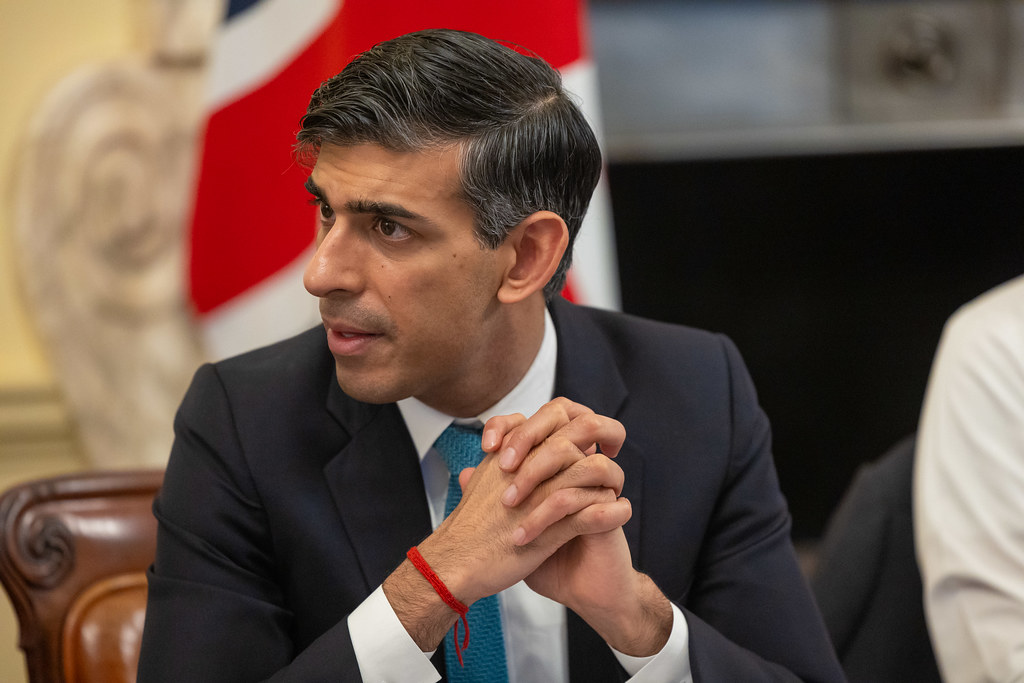If Rishi Sunak still doesn’t recognise the description of himself as ‘tetchy’, then he could do worse than to watch back his performance before the liaison committee this afternoon.
The Prime Minister was not in a good mood when the questions started, though he did seem to relax a little as the 90-minute session wore on. The opening exchanges were testing – they covered the UK’s response to the conflicts in Ukraine and Gaza – and Sunak was rather testy with some of his answers. Some of the later questions from a few of the Labour and SNP MPs on the committee weren’t very much to do with their briefs at all: Angus MacNeill strayed just a tad from his role as chair of the energy committee to ask why Scotland’s economy wasn’t like that of Ireland’s and whether independence could be the difference, while Liam Byrne, who chairs the business committee, asked Sunak whether he was kept awake at night worrying about inequality. Sunak found those bits rather easier.
Where he did have a difficult time was in the section on foreign affairs and immigration. The Prime Minister seemed particularly annoyed by questions from Sarah Champion, the Labour chair of the international development committee. She wanted to know whether he regretted dropping the target for 0.7 per cent of gross national income to be spent on aid, he didn’t regret it, and the pair went round in a rather grumpy circle for a few minutes. Then Alicia Kearns had a go on Israel, and his recent call for a ‘sustainable ceasefire’. Kearns wanted to know whether the Prime Minister agreed with her position that Israel had overstepped its moral boundaries with targeting of civilians. Sunak demurred: ‘From the beginning of this, from my first visit to Israel, we have made repeated calls for Israel to adhere to international humanitarian law’, he said. Pressed further, he added: ‘I mean, I’m obviously not the one making operational decisions on the ground, but we have consistently urged Israel where they can to avoid harming innocent civilians. Far too many have died.’ He dodged the question on whether he agreed with Joe Biden that there were ‘indiscriminate bombings’, merely repeating again that ‘too many civilians have died’. Kearns asked where the responsibility was for the civilians dying, and Sunak responded:
Ask Hamas why they embed themselves in a civilian population. That is genuinely an extraordinary question. Responsibility for civilians dying: there are two sides to this, Israel is trying to defend itself, if the terrorist organisation which is perpetrating these attacks is deliberately embedding itself inside civilians populations, then they have to accept responsibility for that.
On Rwanda, his lack of answers was more revelatory. It was the most uncomfortable section of the session. He was questioned on this by Diana Johnson, who chairs the home affairs committee, by liaison committee chair Bernard Jenkin, and by public accounts committee chair Meg Hillier. He couldn’t say when he expected to ‘stop the boats’ by, or whether the government was going to manage to clear the legacy backlog in the Home Office by the end of the year. Johnson rather drily pointed out that there were only a few days left of this year, but Sunak doggedly said ‘we’re not at the end of the year yet, so the final statistics have not been published, but we are making very good progress’. Johnson also claimed that no airline was willing to fly migrants to Rwanda ‘because of reputational damage’, to which Sunak said: ‘I’m confident we will have the ability to send people to Rwanda.’ He added ‘you wouldn’t expect me to comment on commercial conversations’ – a line he leaned on heavily during these questions, including on whether there were conversations taking place with other countries about similar schemes to the one agreed with the Rwandan government. Sunak replied: ‘It wouldn’t be right to talk about these things, if we’re having private conversations with countries about potential alternatives.’
Hillier, who together with Johnson gave the Home Office a public flaying in a joint committee session last week for the way it slipped out the much higher-than-anticipated costs of the scheme, repeatedly questioned Sunak on why there couldn’t be more updates on how much was being spent on it. She complained that often the government would claim something was commercially confidential which turned out not to be. Hillier grew almost as exasperated as Sunak, reading him the riot act on her role as the chair of a ‘constitutional committee’ and asking again why he wasn’t sharing details of the money with the government.
The takeaway from this section was that the Rwanda scheme might be a flagship scheme, but it’s not a ship Sunak wants to give MPs much of a detailed glance at, in case they are able to point out the many obvious problems with its engineering. Perhaps one of the reasons he was so tetchy is that he knows it’ll be a sinking ship that he’ll have to go down on come the election.







Comments